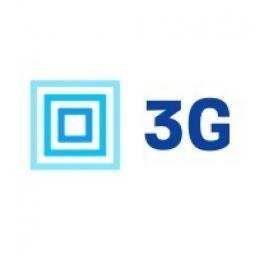Customer Company Size
Mid-size Company
Region
- America
Country
- United States
Product
- Oracle NetSuite
- Pacejet Shipping
- SPS Commerce
Tech Stack
- Cloud ERP
- EDI Solutions
- Shipping Software
Implementation Scale
- Enterprise-wide Deployment
Impact Metrics
- Customer Satisfaction
- Productivity Improvements
Technology Category
- Functional Applications - Enterprise Resource Planning Systems (ERP)
- Application Infrastructure & Middleware - Data Exchange & Integration
Applicable Industries
- Consumer Goods
- Electronics
Applicable Functions
- Logistics & Transportation
- Business Operation
Use Cases
- Supply Chain Visibility
- Warehouse Automation
Services
- System Integration
About The Customer
Koss is a well-established company based in Milwaukee, known for manufacturing, distributing, and retailing high-quality headphones. With a rich history of integrating technology into its operations, Koss has grown significantly over the years. The company is recognized for its commitment to quality and innovation, catering to both retailers and consumers. As Koss expanded, it faced the need to modernize its operations, particularly in the realm of shipping and electronic data interchange (EDI). The company's growth, especially with major partners like Amazon, necessitated a shift to more efficient and automated systems to handle increasing demand and complex shipping requirements.
The Challenge
Koss, a Milwaukee-based manufacturer, distributor, and retailer of high-quality headphones, faced challenges as its operations grew more complex. The company needed to retire its aging, on-premises ERP system and move to a cloud-based solution. As Koss expanded, particularly with a significant channel partner like Amazon, it encountered difficulties managing ultra-high-volume shipments. Amazon orders could exceed 500 packages, requiring Koss to consolidate shipments and manually generate ASN labels, which was time-consuming and prone to errors. The manual process took 20-30 minutes per shipment, increasing the risk of human error and inefficiencies.
The Solution
To address the challenges, Koss implemented a new ERP system, Oracle NetSuite, to replace its outdated on-premises solution. Alongside this, Koss adopted Pacejet for shipping software and SPS Commerce for EDI needs, based on recommendations from its Oracle NetSuite partners. This setup allowed Koss to manage growing demand and ensure compliance with trading partners' requirements. To further enhance efficiency, Pacejet and SPS developed a new integration specifically for Oracle NetSuite users. This integration enabled Koss to automate the consolidation of ultra-high-volume shipments, reducing manual work and errors. The systems worked together within Oracle NetSuite to create proper labels and ensure consistent ASN flow across the organization. This integration not only streamlined operations but also provided growth opportunities, such as multi-level packing using pallets.
Operational Impact
Quantitative Benefit

Case Study missing?
Start adding your own!
Register with your work email and create a new case study profile for your business.
Related Case Studies.
.png)
Case Study
Improving Vending Machine Profitability with the Internet of Things (IoT)
The vending industry is undergoing a sea change, taking advantage of new technologies to go beyond just delivering snacks to creating a new retail location. Intelligent vending machines can be found in many public locations as well as company facilities, selling different types of goods and services, including even computer accessories, gold bars, tickets, and office supplies. With increasing sophistication, they may also provide time- and location-based data pertaining to sales, inventory, and customer preferences. But at the end of the day, vending machine operators know greater profitability is driven by higher sales and lower operating costs.

Case Study
Remote Temperature Monitoring of Perishable Goods Saves Money
RMONI was facing temperature monitoring challenges in a cold chain business. A cold chain must be established and maintained to ensure goods have been properly refrigerated during every step of the process, making temperature monitoring a critical business function. Manual registration practice can be very costly, labor intensive and prone to mistakes.

Case Study
Series Production with Lot-size-1 Flexibility
Nobilia manufactures customized fitted kitchens with a lot size of 1. They require maximum transparency of tracking design data and individual processing steps so that they can locate a particular piece of kitchen furniture in the sequence of processes.










